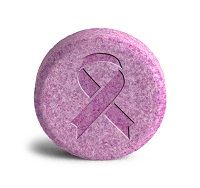Article
Rogue Breast Cancer: The Triple Negative Dilemma
Author(s):
In March 2014, the Society of Surgical Oncology Susan G. Komen for the Cure Symposium focused on the literature on the epidemiology, molecular pathology, and therapy considerations of triple-negative breast cancer. The Annals of Surgical Oncology has published a summary of this work ahead of print.

In March 2014, the Society of Surgical Oncology Susan G. Komen for the Cure Symposium focused on the literature on the epidemiology, molecular pathology, and therapy considerations of triple-negative breast cancer (TNBC). The Annals of Surgical Oncology has published a summary of this work ahead of print.
The term TNBC can mislead clinicians to think of it as one disease, when in fact it is a heterogeneous collection of cancers that fail to express estrogen receptors (ER), progesterone receptors, and HER2. Between 12-17% of all breast cancers meet this criterion. Certain women are at increased risk: young women, women of African and Hispanic descent, and patients diagnosed with “interval cancers.”
Approximately 80% of women who carry the BRCA1 germline mutation develop TNBCs, and approximately 11-16 % of all patients who develop TNBCs carry BRCA1or BRCA2 germline mutations. TNBC increases the likelihood of local and distant recurrence.
TNBC’s hormonal associations are vague. TNBC’s risk factors differ from those for ER-positive cancers and are still being identified. Increasing the number of estrogen cycles over the lifetime (e.g., early menarche, late menopause, nulliparity, late age at first childbirth) generally increases risk of breast cancer. We now know, however, that these risk factors generally elevate risk of hormone receptor-positive breast cancer, not TNBC.
Controversy concerning the optimal margin width in breast-conserving surgery for invasive breast cancer has raged for years, and some patients and surgeons take a “more is better” approach to TNBCs. This article stresses that routinely removing large amounts of healthy breast tissue beyond the edge of the tumor is not indicated. Axillary lymph node dissection or mastectomy are not usually necessary.
Chemotherapy is the only option for TNBC at this time outside of a clinical trial. Studies have found high pathologic complete response rates (pCR) in TNBC treated with conventional anthracycline- or anthracycline/taxane-based regimens. Platinum-based drugs have shown promise but more data is needed to determine if they offer an advantage.




